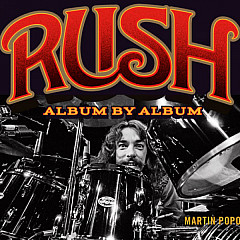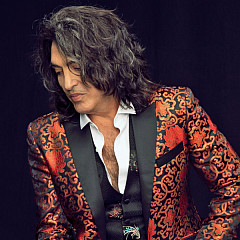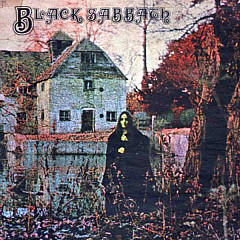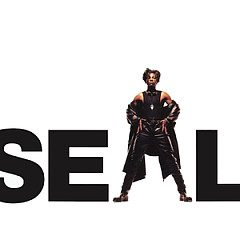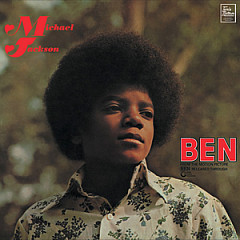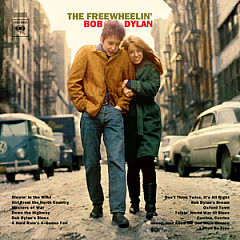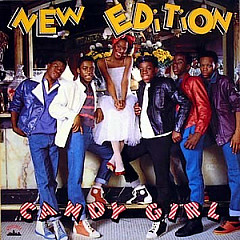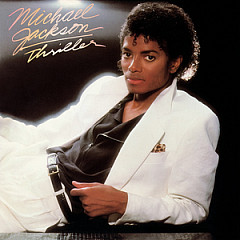Goss is also a respected singer/songwriter/musician in his own right, as evidenced by his work with both Masters of Reality and Goon Moon. In this chat, he compares and contrasts some of the many artists he's worked with, and offers up advice to up-and-coming producers.
 Greg Prato (Songfacts): How would you compare the average production of a rock song in the early '90s pre-Nevermind and post-Nevermind?
Greg Prato (Songfacts): How would you compare the average production of a rock song in the early '90s pre-Nevermind and post-Nevermind? Chris Goss: Interesting. Well, Pro Tools, digital recording as we know it, really hadn't taken over yet by the early '90s. We were still on tape, basically. Although I did hear that they did use an early form of Pro Tools for Nevermind. I don't think the real big change came until the late '90s when the beat alignment and the tuning and the Auto-Tuning really started. That's when it became really normal to start using digital recording and to start correcting the temps and the tunes and things.
That has changed everything, actually. And I don't think for the better. Convenience isn't always better. Your cell phone's a great convenience, but it's also like an albatross as far as I'm concerned. This is a topic of conversation all the time: people who were making records when there was tape, when the tape was rolling, because of the limited amount of tracks on a tape, the take that was going down was very, very important. When someone was doing a take, an atomic bomb could blow up somewhere and no one would say anything because someone was doing a take. There was absolute focus when the tape was rolling.
And since Pro Tools, that's changed. Musical performances seem to be more dispensable and repairable and less important. Now when someone's singing in the studio, there's a lot of chatter in the control room, unless I tell them to shut up. People are watching YouTube videos and doing Facebook shit, and the music has taken a backseat because of the lack of urgency. So I think it's been damaged.
And I think the Auto-Tuning is obscene now. If you're stacking harmonies, and you tune one little note at a harmony that's throwing a chord off, big deal. But there are people who actually make everything perfect. Can you imagine if Auto-Tuning was around when John Lennon was around? John Lennon and most of the great rock singers sang sharp and flat all the time, and if the emotion of the take was proper and it was right, then you went with it. And it felt perfect, because perfection is a vibration, it's not a math equation in music.
So it's really been unfortunate what's happened. People are so used to hearing perfect tuning now that it's almost as if the robot has trained everyone the wrong way. I hear vocals on the radio and it sounds like mice... horrid. And unfortunately, Nashville, where you'd think that country music would lead the way in a natural stylism, they're the worst offenders. Country music's being tuned and Auto-Tuned like crazy. Rock & roll is not supposed to be perfect. That was the whole point of it.
In the 1950s, you pretty much had a choice of classical music or rock. There was the basic radio pop lick, Doris Day or Les Paul or Mary Ford, somewhere in between there. But you either had a board up your ass or you didn't. And rock & roll was the liberation: you didn't have someone standing above you waving a finger telling you to play in tune, and the music teacher there slapping you with a ruler. And now the computers are slapping you with a ruler instead of some asshole in a music school in 1955.
So it's unfortunate, really. I think we've lost a lot, and that's just one of the multi-front assaults. It's a battle out there, buddy.[Laughs]
Songfacts: A lot of albums from say, the '70s, were really the sound of a live band in a room. It wasn't this horrible processed or every-single-note-is-perfect thing. I don't understand why so many people are so quick to go this current route with Pro Tools and also Auto-Tune and everything. It reminds me of the late '80s where everything was perfect and everything was a very clean kind of sound, and then finally in the '90s, '91/'92, things got back to a more raw/real sound.
 Goss: It's a sheep syndrome, the herd mentality. If the herd starts running one way, if you don't run with it, more than ever you feel like you're going to get left behind. If you're not in line at the Apple store the day the new phone is out, you're an asshole. And that goes with a lot of smart people, as well.
Goss: It's a sheep syndrome, the herd mentality. If the herd starts running one way, if you don't run with it, more than ever you feel like you're going to get left behind. If you're not in line at the Apple store the day the new phone is out, you're an asshole. And that goes with a lot of smart people, as well.It's infiltrated everywhere, and it's almost like a fever of conformity. I'd never felt that way. I was saying "Fuck you" when I was watching the Grammies and I was 16 years old. Now I'm 54 years old and I'm saying the same thing when I watch the Grammies. I haven't changed.
I wish I didn't have to have a laptop to download music, but I have to carry one around. Bands hand me new songs, and what am I going to do, tell them to FedEx them to me? At this day and age when I can have them in 10 minutes?
It's laziness and convenience to get my work done quicker, but not to cheat and not to make records that sound like robots playing music. I mean, Kraftwerk and, say, Devo, did very robotic music at times. But it still was soulful and it still swung. And there was still something very beautiful about it. But now it's a whole different ball game and I find it obscene, actually.
Songfacts: Yeah. Really, the only band I could think of that's maybe going a current route with recording that is probably Radiohead. That's the only band that I could think of that's not totally mesmerized by all the current technology like we were just talking about, Auto-Tune and everything like that.
Goss: It's funny you mention that, because when OK Computer came out, I took that title immediately to mean, "OK computer, all right, you're here, let's deal with it." I thought it was almost like a statement like, "It's here, and okay! You deal with it however you need to."
And Radiohead's great, one of the few. I'm with you on that.
Songfacts: Are there any other bands that you think use modern-day technology well, as opposed to some of them that get a little too mesmerized by it?
Goss: Well, there's a lot of this new folky stuff out now: Bands that look like they're in the civil war era with a girl playing banjo and a guy with a mandolin - the whole line of health food store people or something. There seems to be a revival of that, which may be kind of an anti-current.
But I haven't heard anything that really has blown my mind in a while.
Songfacts: I'd like to talk about some memories of producing or also recording some of the artists that you've worked with over the years. When you worked with Stone Temple Pilots, that wasn't producing. What was that? Was that engineering?
Goss: Well, they gave me an engineering credit. But actually they called me in to cut vocals with Scott. So that's what that role was: To guide him with vocals, I suppose. That would be the word. [Chris is credited as "vocal engineer" on the 1996 STP album Tiny Music... Songs from the Vatican Gift Shop.]
Songfacts: What was your approach to recording vocals with Scott Weiland?
Goss: Well, that's an interesting choice. At the time - and I don't know where he's at now - he was a bad boy and going through a lot of drug problems. So I knew what I was getting into and I'd worked with him on his solo record as well. The Magnificent Bastards is a side project that he had done. He's really talented, and he's got a good voice, so the approach was let him do this thing.
I had kind of like a "cringe factor." If I cringe at a lyric or a note or a melodic idea internally, I wouldn't show it blatantly outward, but that's when I would step in and say, you know, why don't you try this? There's a poetics to melody and the phrasing. It's subjective, but there's guidelines of pace. I would speak up and say, "It'd be great if in the second verse you brought the melody up a little bit or changed it up. And in the chorus, bring the last line up, blah, blah, blah." Just basic rudimentary musical taste suggestions. And I think that's why he brought me in, for that purpose. It was pretty standard, actually. Nothing too intense.
Songfacts: And then how would you then compare the experience to when you worked with Ian Astbury of The Cult on the album Choice of Weapon [2012]. Would you see any similarities?
Goss: Very similar in a way. Ian is very slow writing his lyrics. So where Scott would have an abundance of lyrics, Ian would hold off on his lyrics to the last second, like 5 in the morning last second. And by the time we'd start going, it'd be sunrise.
So it's people's work ethics actually that are usually the point of contention. Like, some people can throw down a vocal in a take or two and other guys take a week or two to get it right. With Ian, the music has to be in a pocket for him that he feels it's time to him to sing over it. It's actually kind of a delay process, I think, on his part. But then when he finally gets to it after a certain amount of prodding, he comes out with it.
So it's just different work ethic priorities with different singers, whether they're over prepared or under prepared or dreading to do it. And other guys will just stand up and nail something in one take. There's one singer I'm really into right now, his name's Frank Carter. And he sings with a band called Pure Love. I cut three tracks with them last summer, and he's the best singer I've heard in ages. He's in London now. They're doing their last tour. I guess the band's going to cash it in - they can't get a deal. It's one of the best things I've heard in a long time, and it's just indicative of where things are at right now.
Goss: Encourage them. They were fearless, which was great. The word in this business right now is fear. At the time with Kyuss, they were young and they were pissed off, they didn't want to conform. So naturally, I loved it. And thought, "Wow, this is great. They want to put a lot of piss and vinegar on that record." And I was all for it.
They just threw it down, and it was a blast. Absolute pleasure.
Blues for the Red Sun and Welcome to Sky Valley were two of the most fun, creative records I've ever worked on. It was totally free of paranoia or fear of the label or fear of anything. They just wanted to blow people's eyeballs out. So it was sheer pleasure for me.
The last record, …And the Circus Leaves Town, unfortunately, even the title of the record, that was the vibe when we were making that record. We knew it was the last one. Brant [Bjork] had left the band after Sky Valley and it just wasn't the same Kyuss any longer. Nick Oliveri was gone, Brant was gone. But the first two I did were two of the best experiences in my life in the studio. It's a yardstick to compare other projects with.
Songfacts: Tell me about the Masters of Reality song "Blue Garden."
When I wrote it, I knew I was onto something. And lyrically, That whole first Masters of Reality record [1988's Masters of Reality], especially that song in particular, was my dilettante of cult numerology study, which at the time was all based on Mercury and the number 8. So that was my obsession. I'll leave it there... let people take it from there.
Songfacts: Lastly, for producers that are starting out, can you give any kind of advice?
Goss: Well, the don't-quit-your-day-job line comes out immediately. But just stick to your guns. It takes a long time now, it's so fragmented now, the business. Just don't stop until you're happy. You have to make records for yourself. You really do. It's for you. If you're very, very happy with what you have, then probably someone else will be, too. That's the only lesson I've learned is be true to yourself as much as you can possibly be.
September 23, 2014
For more info about Masters of Reality, check out their Facebook page and official site.
More Songwriter Interviews

